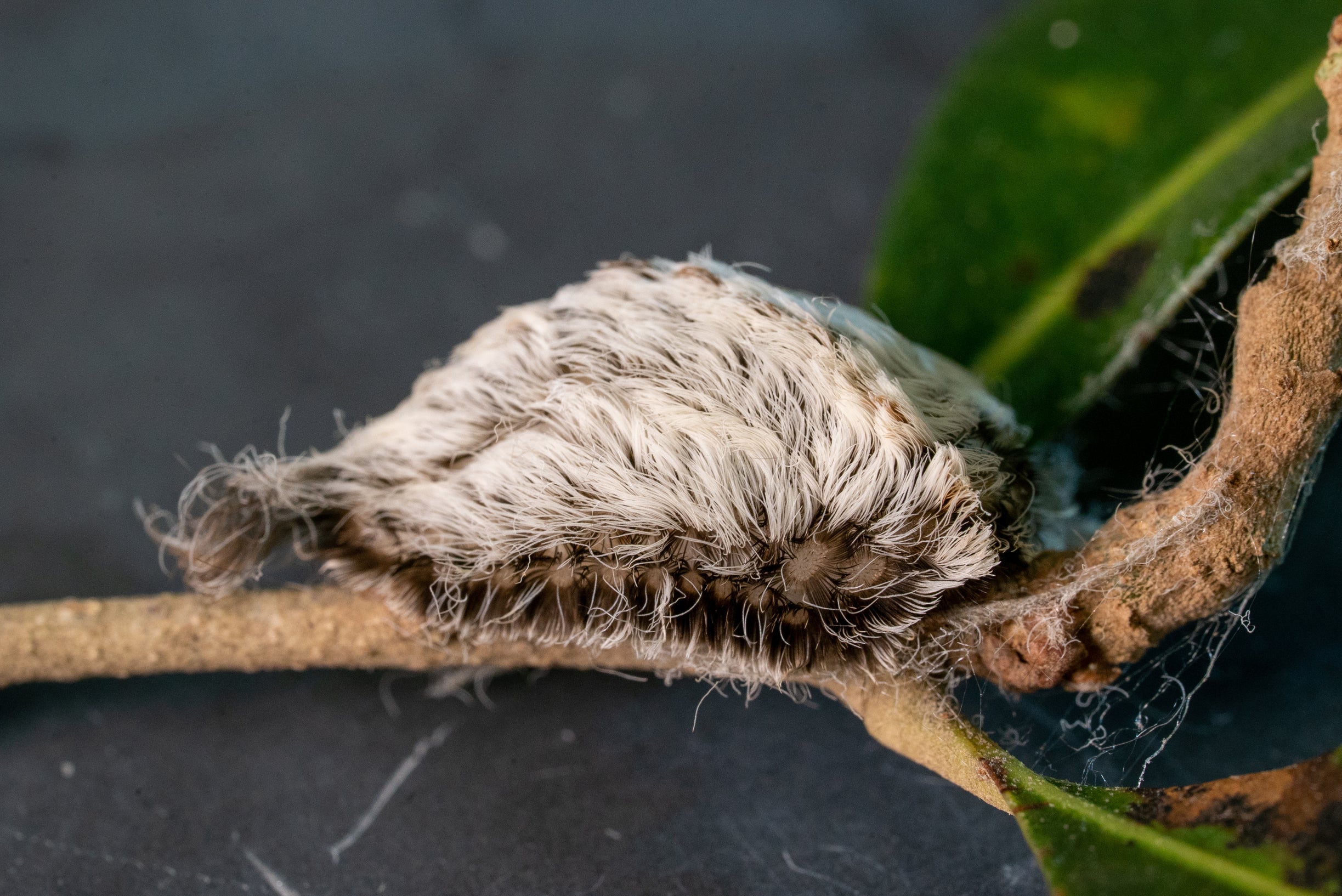The fuzzy asp caterpillars found across campus and throughout Houston might look cute, but they can dish out nasty stings that can be excruciatingly painful and cause serious allergic reactions. So Student Health Services and Rice Emergency Medical Services (REMS) want to give everyone in the Rice community a seasonal warning.
“I think people that aren’t from Houston might not necessarily know, and because they’re not something we see year-round,” said Lisa Basgall, director of REMS.
Basgall said three Rice students sought medical attention from REMS for asp caterpillar stings last week. “It’s just the beginning of the season. It usually is a three- or four-week time until the colder, wetter weather comes. It’s not uncommon. I’m expecting two or three times that this week,” she said.
Also called southern flannel moth caterpillars, asp caterpillars hide a plethora of tiny venom-filled spines below their soft, silky exteriors. They’re typically between 1 and 1.5 inches long, with colors that can vary from gray to yellow to reddish-brown.
“We’ve bred a lot more of these caterpillars because of the nets that were put on trees (to deter birds),” Basgall said. “This is always the time of the year when they just fall out and land on people. We have these gorgeous trees on campus, which is great, but they’re a good home for these caterpillars.
“They crawl around on benches and outdoor furniture too, so again, if you don’t know what it is, you might think, ‘Oh, let me put it on my finger!’” Basgall said, warning people not to engage with the critters no matter how soft and nonthreatening their fuzz looks to the untrained eye.
If you are stung by an asp caterpillar, Rice’s medical experts recommend you do the following:
- Rinse the area of skin with soap and water.
- Use cellophane tape to remove any remaining spines.
- Apply ice to the area.
- Take an oral antihistamine such as Benadryl.
- Use topical hydrocortisone.
If those steps don’t help, if you have a history of allergic reactions to insects or if you experience severe symptoms including shortness of breath or swelling, immediately call Rice EMS at 713-348-6000, or Student Health Services at 713-348-4966.
“Like a mosquito bite, if it’s just itchy at the site, that’s not a big deal,” Basgall said. “If it starts to progress, like if you feel short of breath or chest tightness, or your whole arm turns red or gets hives, then it’s time to seek medical care.”

